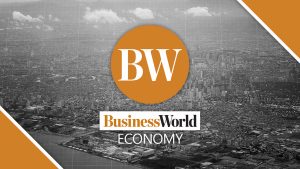A common guiding principle across accounting, law, and tax is the concept of “substance over form.” That is, the economic reality of a transaction must prevail over its legal form.
While this may be the case, tax investigations in the Philippines generally apply a stricter measure in reviewing expenses. Specifically, the expense claimed must be compliant in both substance and in form. The higher level of scrutiny is not intended to make it difficult for taxpayers to claim expenses for income tax purposes. Rather, such treatment is anchored on existing tax rules and jurisprudence.
The Supreme Court (SC) has decided on a number of cases involving deductions claimed for income tax purposes. For instance, in a 2003 case, the SC ruled that deductions for income tax purposes take on the nature of tax exemptions. Hence, similar to tax exemptions which are strictly construed, deductions must also be treated likewise.
In the landmark case of H. Tambunting Pawnshop, Inc. vs. Commissioner of Internal Revenue (G.R. No. 173373 dated July 29, 2013), the SC held that when a taxpayer claims a deduction, he must point to some specific provision of the law authorizing that deduction and that he must be able to prove that he is entitled to the deduction which the law allows. In its decision, the SC highlighted that the law requires that taxpayers support their claims for deductions with the corresponding official receipts issued by the service providers concerned. It’s worth emphasizing that the case involved transactions carried out in 1997, prior to the effectivity of the 1997 Tax Code (Jan. 1, 1998). Thus, in its decision, the SC applied the 1977 Tax Code, as amended (Presidential Decree No. 1158), instead of the 1997 Tax Code. Specifically, the SC cited Section 238 (Issuance of receipts or sales or commercial invoices) of the 1977 Tax Code as a supplement for the substantiation requirement of the expenses claimed. At that time, the prevailing Tax Code did not yet include a separate provision on the substantiation requirements for expenses.
Despite the above decision, the SC took a more lenient stance in Pilmico-Mauri Foods Corp. vs. Commissioner of Internal Revenue (G.R. No. 175651 dated Sept. 14, 2016) (“Pilmico case”) when it acknowledged that official receipts are not the only pieces of evidence which can prove deductible expenses. The SC added that if such documents are presented, then they shall be subjected to examination as well. Similar to the Tambunting case, the subject transactions in the Pilmico case were also covered by the 1977 Tax Code.
The 1997 Tax Code (Republic Act No. 8424) introduced specific substantiation requirements for expenses under Section 34(A)(1)(b). It provides that no deduction from gross income shall be allowed unless the taxpayer shall substantiate with sufficient evidence, such as official receipts or other adequate records: (i) the amount of the expense being deducted, and (ii) the direct connection or relation of the expense being deducted to the development, management, operation and/or conduct of the trade, business or profession of the taxpayer. With the introduction of the phrase “or other adequate records,” the law clarified that the acceptable supporting documents for expenses are not limited to official receipts or invoices. It provides more flexibility on the documents that may be used as long as they contain information on (i) the amount of the expense being deducted, and (ii) the direct connection or relation of the expense being deducted to the development, management, operation and/or conduct of the trade, business or profession of the taxpayer. Under this context, “official receipts” appears to have been mentioned only by way of example.
While some may view this interpretation to be too liberal, the BIR has likewise adopted a similar interpretation. In a 2020 ruling, the BIR opined that the official receipts or other adequate records mentioned in Section 34(A)(1)(b) embraces any document evidencing delivery or agreement to sell or transfer goods and services. In this case, our tax authority recognized that other adequate records like acknowledgment receipts, statements of account, and/or vouchers are among those which may substantiate the ordinary and necessary expenses claimed. However, the BIR also took the position that these documents must be registered with the BIR pursuant to existing tax rules and regulations.
Note that tax rulings are unique to the circumstances of the taxpayer who applied for such confirmation from the BIR and may generally not be applied across the board. Nevertheless, this ruling may help loosen the rigid interpretation that only official receipts or invoices may be used to substantiate expenses claimed and it is more consistent with the provisions in the 1997 Tax Code.
Notwithstanding, for taxpayers who would like to stay on the safe side and steer clear of any risk of disallowance of expenses, invoices are still the way to go and these should be maintained as the primary supporting documents for expenses claimed for income tax purposes.
As a reminder, documentation is only one of the requisites for the deductibility of expenses. It is equally important that all the other requisites (i.e., (i) the expenses must be ordinary and necessary; (ii) the expenses must have been paid or incurred during the taxable year; and (iii) the expenses must have been paid or incurred in carrying on the trade or business of the taxpayer) are likewise met.
The views or opinions expressed in this article are solely those of the author and do not necessarily represent those of Isla Lipana & Co. The content is for general information purposes only, and should not be used as a substitute for specific advice.
Paolo John Dantes is a manager at the Tax Services department of Isla Lipana & Co., the Philippine member firm of the PwC network.
+63 (2) 8845-2728
